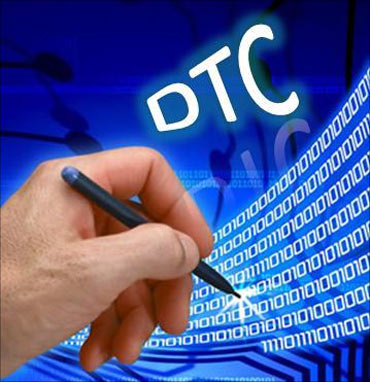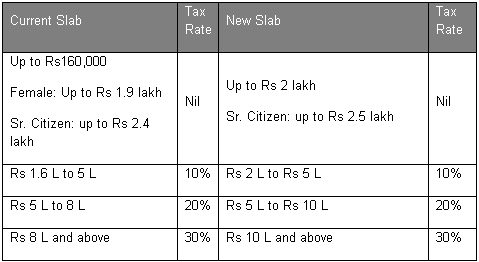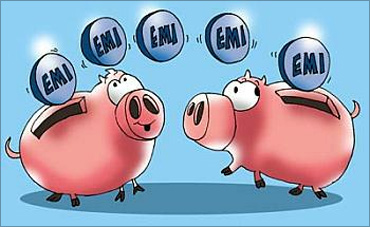
The Direct taxes Code or DTC which is all set to replace the old tax regime and bring about a revolutionary change in the way we pay tax is slated to come into effect from April 1, 2012 (hopefully, this budget will be merciful and the regime will see the light of the day!). After much discussion and contemplation, the cabinet sans few benefits and finally passed the DTC bill with few additional regulatory inclusions.
However, it is yet to become effective; it is highly anticipated that it may see its place in the Union Budget 2012-13.
Although, there are no new major surprises, the DTC is likely to bring in transparency and offer rules that are simple to follow. But will it be a game-changer for taxpayers?

1. Income-tax slabs
From the current Rs 1.6 lakh exemption, the exemption limit has been increased to Rs 2 lakh. In this bargain, there is no longer any additional benefits offered to female assessees. However, senior citizens have the exemption limit at Rs 2.5 lakh (this was earlier Rs 2.4 lakh).
A person with Rs 18 lakh of taxable income would now end up saving Rs 24,000 under the new tax regime, this would mean Rs 2,000 per month of additional money in the pocket that is available for investments.

2. Impact on investments
Many of the investment avenues are likely to undergo changes with investment houses planning to migrate from an EEE (Exempt- Exempt- Exempt) regime to EET (Exempt- Exempt-Taxable) regime. Investors, who have been planning their tax saving investments, may now have to look at investments from both returns perspective and tax perspective.
If the DTC is implemented in its existing form, total savings-related deduction available will be Rs 1.5 lakh. Of this, deduction on life as well as health insurance premium and children's tuition fees will be restricted to Rs 50,000 per financial year.
ELSS (Equity Linked Savings Scheme): Tax saving equity mutual funds is typically an easy access tax investment. At the end of every financial year there is a rush to subscribe to ELSS funds. The major change that will come under the new DTC is that tax exemptions for ELSS funds will no longer be valid. In all probability, ELSS funds will be merged with diversified equity funds and the lock in period of three years would go away.

3. Principal repayment on home loans
DTC provisions will hurt individuals servicing home loans now, as repayment of the principal amount will no longer feature as a tax-saving tool, although, interestingly, deductions on the interest paid will continue to be allowed.
Interest payment towards home loan will continue to enjoy the benefit u/s 24.

4. Life insurance premium
Under DTC, to be eligible for tax deduction, a policy should give life cover of at least 20 times the annual premium. If this condition is not met, the premium paid will not get any tax deduction and even the income from the policy will be taxable.
Right now income received from insurance policies is free, this may not hold good, post implementation of DTC and a gradual migration towards EET regime. Premature withdrawals from ULIPs will be taxed, unlike the current scenario wherein any premature withdrawal remains tax-free. ULIPs may thus lose luster with the advent of DTC.

5. Pension plans / New Scheme
DTC has clearly changed gears and is focussed on making the individual think long term. It has proposed to make annuity income exempt from taxation, which makes pension plans a good tax efficient instrument.
The New Pension Scheme which is a low cost pension fund is currently under the EET regime but will be moved to the EEE regime.
Other tax related implications
6. Deemed income on additional house
Under the current tax regulation, on a house which is vacant, the assessee is required to assume a nominal rental income and bring the same within the tax net. The DTC will remove this anomaly and make investment in second home more tax efficient. Another landlord friendly move is that advanced tax received from a tenant will be taxed in the year it relates, not when it was received.
Capital gains from equity and its tax applicability
Long-term capital tax exemption on equity was retained, although many anticipated it to be removed. The assessment of whether it would qualify as short term (holding period <=12 months) or long term (holding period >12 months) has undergone a change.
These are just some of the changes which have been proposed, the regime missed being tabled during the winter session, will it miss being a part of the budget too? For the taxpayer it's just some more wait with bated breath.